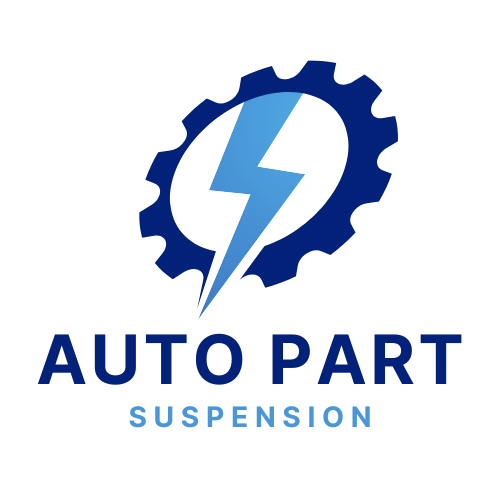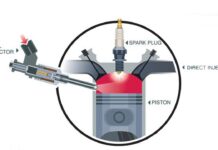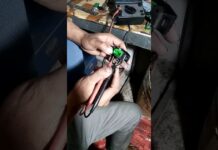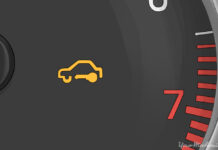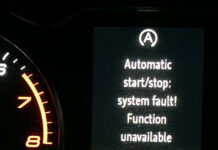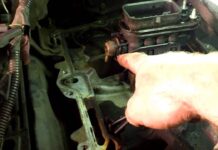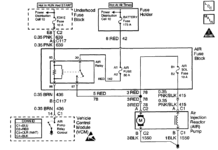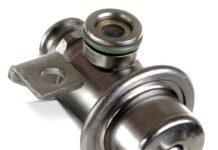What is the P0481 fault code What is the description for the Cooling Fan 2 Control Circuit malfunction How do you fix the P0481 fault code What are the symptoms and causes for the P0481 fault code
What is the P0481 fault code? What does it signify?
A vehicle’s cooling system is complete without the fans. The relay is a type of electromagnetic switch that controls the voltage to the cooling fans. One relay is needed for each fan circuit. If there is a problem with the cooling fan control system, the code P0481 is triggered. This code will only be displayed on vehicles with multiple radiator cooling fan.
The engine is effectively cooled when enough air flows through the radiator. The engine temperature starts to rise if the vehicle is stopped. The PCM detects an increase in engine temperatures by the coolant temperature sensor that is next to the thermostat. When the temperature reaches approximately 223°F (106°C) (value depends on make / model / engine), the PCM commands the cooling fan relay to turn on the fan.
Fans can have different sizes and operate depending on temperature. Its primary function is to ensure sufficient airflow through radiators to maintain engine temperature and reduce electrical system load. The PCM cannot control the speed of one fan if the vehicle is slow in heavy traffic and low temperatures. The input data from vehicle speed sensors, engine coolant, and other sensors, the PCM can control the speed of fans or activate multiple fans simultaneously to maintain engine temperature as conditions change. The radiator fans play an important role in engine temperature management. Therefore, the PCM closely monitors the operation and performance of the radiator fans to ensure that the engine does not overheat.
The PCM activates the cooling fans relay 2 when it detects malfunctions in the signal and control circuits of the fan. If it does, the PCM will activate the P0481 codes.
What causes the P0481 Fault code?
Below are some reasons to set fault code P0481:
- – Defective fan control relay 2
- – Fan circuit problems such as bad wiring, loose connectors or an open or short circuit
- – Defective cooling fan 2
- – Sensor for temperature measurement of coolant defective
- – Sensor for defective intake air temperature (IAT).
- – Switching the defective A/C selector
- – Defective A/C refrigerant pressure sensor
- – Defective vehicle speed sensor (VSS)
What are the symptoms of P0481 Malfunction Code?
You may experience the following symptoms if your vehicle has the code P0481:
- Illumination of the check engine light
- – Engine overheating or overheating
How do I fix the P0481 fault code?
If code P0481 appears, it means that either the cooling fans need to be replaced, or the cooling fan relay needs to be repaired. The PCM controls the cooling fan relay using a variety of sensors. These sensors include:
- – Sensor to measure intake air temperature (IAT).
- – Engine coolant temperature sensor
- – A/C refrigerant pressure sensor
- Vehicle speed sensor
It is important to inspect all of these sensors and circuits in order to avoid any unnecessary replacements.
The following repairs may be able to resolve the P0481 fault code:
- Check the electrical connections between the relay and the cooling fan.
- – Disconnect the electrical connections, inspect them for corrosion, and then connect again to create a new one.
- – Check the connector or harness visually for frayed wires. As needed, repair or replace cables.
- – Repair as necessary if there are blown fuse or fusible links.
- If the problem isn’t in the wiring or the fuses, the cooling fans relay must be checked and may need to be replaced.
- – If the above steps do not resolve the problem and the code does not go away, it may be the cooling fan that is the problem. Sometimes, the cooling fan and cooling fan relay must be replaced.
How serious is the P0481 Fault code?
While Code P0481 won’t prevent the vehicle running and driving, it could still pose a serious problem. If the cooling system is not working properly, severe damage may occur to the engine if it is subjected to excessive heat. Overheating the engine can cause serious damage to important parts and expensive repairs.
